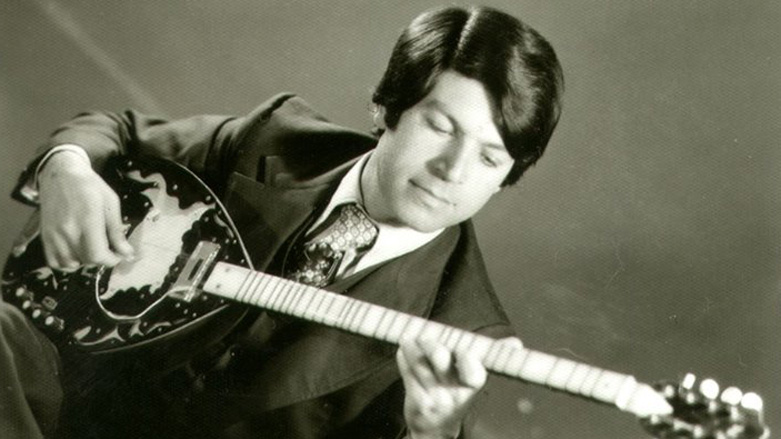Legendary Syrian Kurdish musician Seid Yusif, 'Prince of Buzuk,' dies at 73

ERBIL (Kurdistan 24) – Revered Kurdish composer and performer Seid Yusif, from the Syrian city of Qamishlo, died on Wednesday at age 73 after an almost three-month struggle with cancer at a hospital in Istanbul.
He leaves a rich and powerful 50-year legacy of Kurdish music and culture.
“He did not think he would die,” Asad Das, Yusif’s son-in-law, told Kurdistan 24 in Istanbul. “He said he wanted to make many more songs and write lyrics. But he did not have time to make these songs.”
Although not much is written about Yusif (also commonly spelled Said Youssef) in English, among Kurds he was a musical legend. He is known for his songs about love, and Kurdish patriotism, such as the favorites Kurdistan yan neman (Kurdistan or death) and ey Newroz.
After his death, Kurdistan Region President Nechirvan Barzani said on Wednesday in a condolence statement, “We are very saddened with the passing of the famous Kurdish artist Seid Yusif.”
“He devoted his entire life to art and did a great service of Kurdish music and songs, leaving behind a great and rich artistic legacy. He will always be remembered by his voice, sound, and art.”
The Cultural Committee of the Kurdish-led Self-Administration in North and East Syria said in its own statement, “Yusif has contributed greatly in developing Kurdish music and has deserved a great appreciation from all sides, whether inside the country or overseas.”
The administration expressed its deep sorrow at the death of the “Prince of Buzuk,” as he was often called because of his expert performances on the folk instrument known as the buzuk, a long-necked fretted lute related to the Greek bouzouki and Saz.

According to Gani Mirzo, a Barcelona-based Syrian Kurdish musician and composer, Yusuf was responsible for introducing the buzuk to Kurdish music.
“Since then, this instrument has evolved among the Kurds,” he told Kurdistan 24.
Lukman Ahmad, a Syrian Kurdish artist living in exile in the United States, told Kurdistan 24 that Yusif played an important role in giving Kurdish music in Syria a new style and original artistic form.
That form, he said, was “based on the aesthetics and simplicity of the melody and also on the lyrical poetry that Seid Youssef developed based on popular vocabulary and daily expressions.”
“He gave a classy aesthetic image of the beauty of Kurdish women through symbolic description. He raised the Kurdish romance to an aesthetic level that is enjoyed by everyone, from Kurds to other peoples in the region.”

The Kurdish musician Gani Mirzo added that that the role of Yusuf was important, especially during years when Kurdish music and culture were suppressed by states in the region such as Turkey, Iraq, and Syria.
“His role was very important for Kurdish songs, Kurdish music, and for changing the Kurdish culture, during a very difficult time in the 1960-1970s.”
“He didn’t sing old traditional songs,” Mirzo added. “He actually modernized Kurdish songs, and his lyrics were close to the people. For this reason, he has had influence among Kurds in all four parts of Kurdistan. His was a turning point… Before Seid Yusif and after Seid Yusif.”
Many other Kurdish artists, such as Eyas Yusif from Zakho and Mihemed Şêxo from Qamishlo, have been strongly influenced by Yusif and regularly sang his songs.
Yusif famously named his city of Qamishlo “The city of love” in one of his most beloved songs, Qamishlo Bajarê Evînê [see video below].
His family and his fans are determined to bury him in his hometown in northern Syria. His body is expected to return to Qamishlo on Friday and the funeral is scheduled to take place the following day.
“His music will influence future singers for decades to come,” Mirzo concluded.
“It is a foundation for many artists to make their original music. We must recognize that Seid Yusif has a major role in the evolution of Kurdish music. His death is a big loss for the Kurds.”
Editing by John J. Catherine
